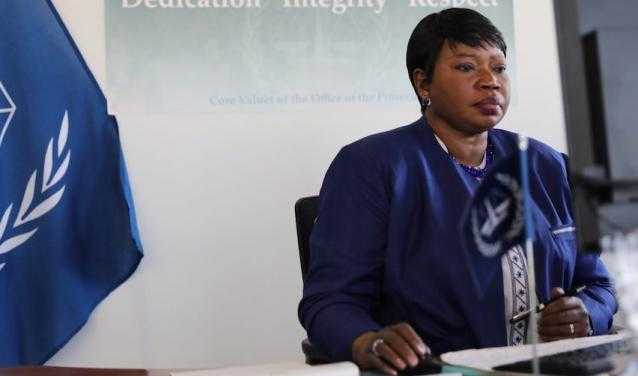Home>“Multilateralism: Modus Operandi For Progress”

18.09.2020
“Multilateralism: Modus Operandi For Progress”
On 10 September 2020, the International Criminal Court’s Chief Prosecutor, Fatou Bensouda, who just a week prior made headlines for receiving sanctions by the United States government, addressed the new and returning graduate students of Sciences Po’s School of International Affairs (PSIA) for an inaugural lecture on multilateralism.
Ms. Bensouda, a Gambian lawyer who has served as Chief Prosecutor of the ICC since June 2012 and is approaching the end of her term set for December 2020, shared her vision of the importance of global cooperation and a justice system independent of politics and states.
“Multilateralism is not under decline. But it is under great stress.”
Introduced by Dean Enrico Letta, Prosecutor Bensouda began her talk by conveying her regret of being unable to address the students of PSIA, “the future leaders of the world in international affairs,” in person, due to the Covid-19 crisis. But the challenges posed by this pandemic, she went on to state, are the perfect example of how multilateral cooperation between states is crucial to address a global issue. “None of us is safe until we all are,” she says.
Prosecutor Bensouda expressed her concern that “in this new century, we increasingly find ourselves confronted with threats to multilateralism and the post-World War II rules-based global order, where the sanctity of sovereignty is misappropriated in the service of exceptionalism and the rejection of international law and international rule of law.” History and war and peace throughout the ages, she says, have taught us the lessons on which we have built the post-WWII global order, however imperfect. This global order, she states, was built “in the hopes of saving future generations from the surge of deconstructive power and rivalry, perpetual wars and mass atrocities.”
Prosecutor Bensouda goes on to make the case for multilateralism as the preferred modus operandi for international state relations and cooperation, which have been “the hard-earned fruits of our costly experience: our common loss, as well as our common awakening and wisdom.” Further, she states: “As the world is increasingly interdependent and faced with common challenges such as climate change, cross-border terrorism, war and mass atrocities, real success and progress depends on our willingness to acknowledge that it is only through collaboration and concerted effort that we can hope to counter the destructive and destabilizing force of these ills.”
“The court does not do popularity contests”
Prosecutor Bensouda then declares the creation of the International Criminal Court as what must be one of “humanity’s proudest accomplishments”. However, the ICC’s fight is a long and challenging one, as “no single human advance has travelled the path of least resistance.” Its operation in full independence from political states, she highlights, is critical to the credibility and longevity of the institution. Moreover, international criminal justice has demonstrated that it works for the benefit of humanity’s progress, if it is increasingly accepted by states as necessary in the fight against impunity.
Prosecutor Bensouda reaffirms the necessity to not abandon millions of victims who are only heard by the International Criminal Court, and the need to stand up for them firmly, however complex the road may be to achieve justice. “Where justice is silent, where the truth isn’t heard, we make it possible for evil to triumph.”
In conclusion, Prosecutor Bensouda reiterates that multilateralism has to be the preferred modus operandi for state relations and corporations to advance the peaceful settlement of disputes, and in the case of international criminal justice, accountability and justice for the victims. “The challenges are formidable. But so are the costs of failure.”
The Sciences Po Editorial Team
More information